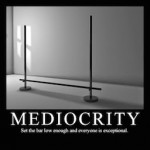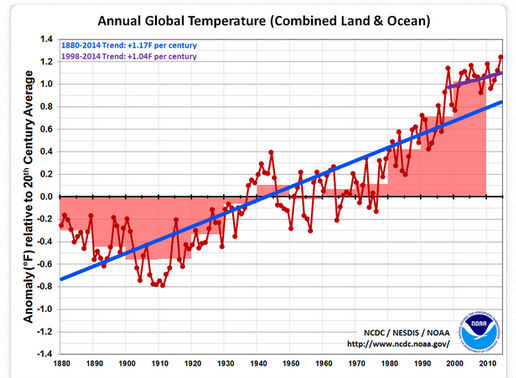President Obama unwittingly invoked dramatic irony during his recent state of the union address. For those unfamiliar with this less common definition of irony I provide herewith a definition: “dramatic irony: a literary technique by which the full significance of a character’s words or actions are clear to the audience or reader although unknown to the character.”
He opens his speech with, “Tonight, after a breakthrough year for America, our economy is growing and creating jobs at the fastest pace since 1999.” For now we’ll ignore the dissembling in that remark (faster growth has actually occurred 4 times since 1999 – in 2010, 2006, 2004 and 2000). Later in the speech he then remarks that, “we’re the only advanced country on Earth that doesn’t guarantee paid sick leave or paid maternity leave to our workers.” Again, not entirely accurate – Canada and Japan also do not.
However, the point of irony here is that while he praises the capacity for the American economy to foster vigorous job growth he is entirely oblivious to the fact that the rate of productive job creation (that is, not busy-work jobs) scales with the level of freedom of the individual to pursue their own ends, unmolested by meddling third parties. And being so oblivious he then calls for yet another layer of regulation that is guaranteed to retard the very job growth he praises.
More individual freedom translates into more opportunity, but less freedom, by way of a mountain of inscrutable regulations, increases the net cost of hiring. Given a fixed source of funds, one has no choice but to buy less of something if its cost goes up. The President seems to be under the impression that wages are derived from a bottomless pot of money kept at company headquarters, the disbursement from which is artificially limited by Monty Burns-style corporate bosses. Companies, unlike the government, can’t steal or print their money; they have to actually earn it by giving the consumer something they want.
Just as with his perplexing proposal to zero out the tuition of community colleges he is once again answering a question no one is asking. He claims 43 million workers have no access to sick leave. Since he doesn’t cite his source it’s unclear if that number would be reduced if we included workers that are permitted to substitute vacation time when sick. Nevertheless, this certainly sounds like a lot of people. Let’s parse it out. Using data drawn from the government’s own Bureau of Labor Statistics (bls.gov) we find total employment for 2013 averaged around 143 million. We also find that 75% of full-time workers and 23% of part time workers had access to paid sick leave. That’s about 93 million with such access. If we are to be impressed with the President’s figures, we should be doubly so impressed with this one. However the weedy details are not nearly as interesting as the game he is playing. He is imitating quite well his political predecessors who also sought to take credit for something the market had already brought about. He would like nothing more than to step in front of the ongoing parade and pretend it was following him all along.
Market forces have independently, and in the absence of government coercion, expanded access to an economic good that employees demanded: paid sick leave. In 1950, 46% of full-time workers had access to paid sick leave. In 1970, 51% did. By 1992 that number had risen to 58% and then by 2012 to 75%. A similar narrative can be found for other “we only have this because of government” myths, such as the 5 day, 40 hour work week, ending of child labor, or worker safety. All improved over many decades long before politicians got involved and passed “laws” that simply memorialized what was already common practice.
The growth of such benefits is akin to the steady growth of stock dividends. Both increase at a steady pace because the growth in human ingenuity (leading to greater productivity) is an incremental process. We didn’t go from the steam engine to the integrated circuit overnight. Productivity enhancements accruing from incremental improvements in mechanical capital take time. As a society and an economy becomes more productive it becomes more able to afford things it could not afford in the past, like paid sick leave, paid vacations, or paid maternity leave. In 100 years our economy may be so productive it is literally only necessary to work 1 day a week. So if government is the true source of all that is good and fair in the world, why don’t they pass a law now capping work to 1 day a week? Because even they know that will fail. It is much more expedient to find something the market has already nearly achieved and swoop in at the last minute in order to take full credit. Perhaps their next act will be to pass a law mandating the sun rise each day. Isn’t law just grand?



